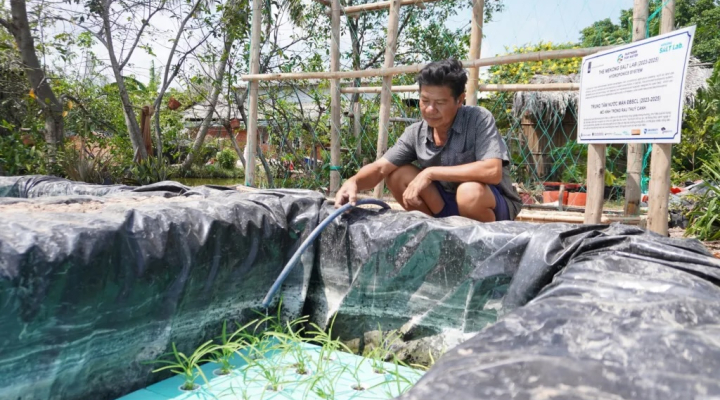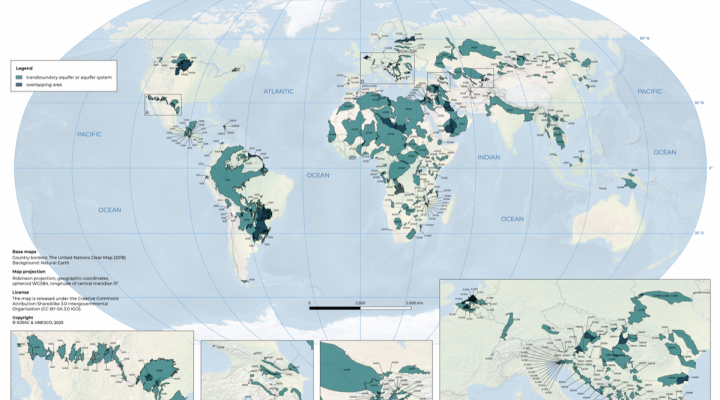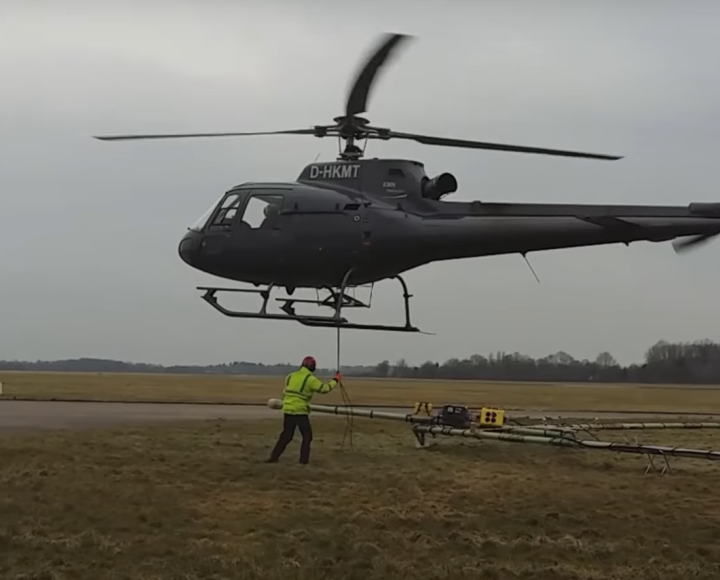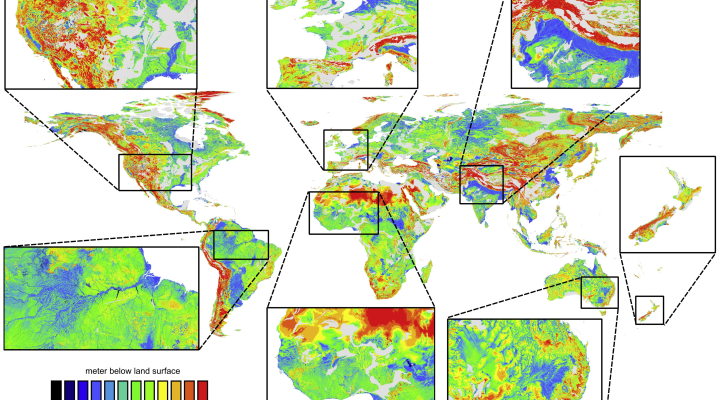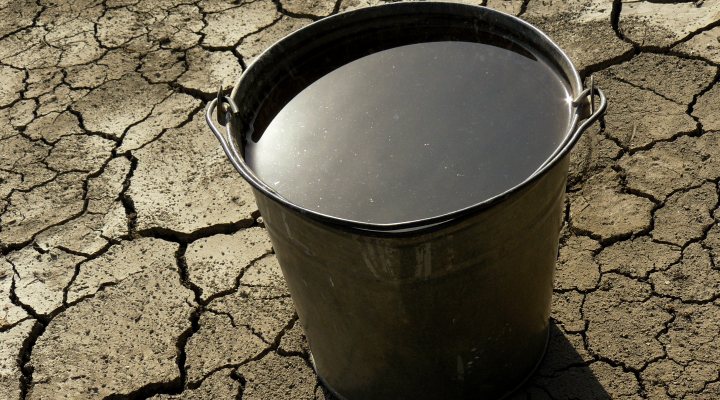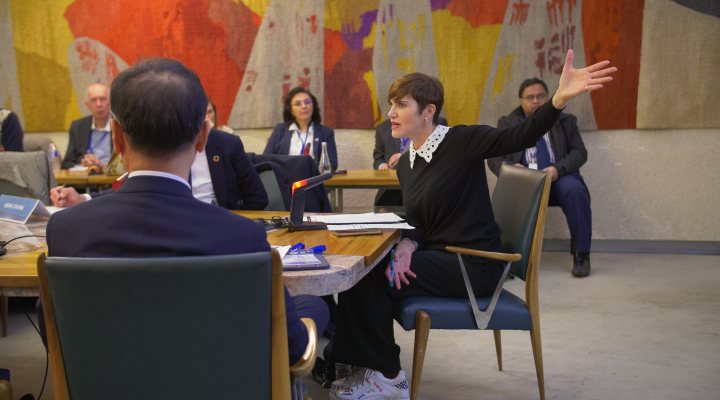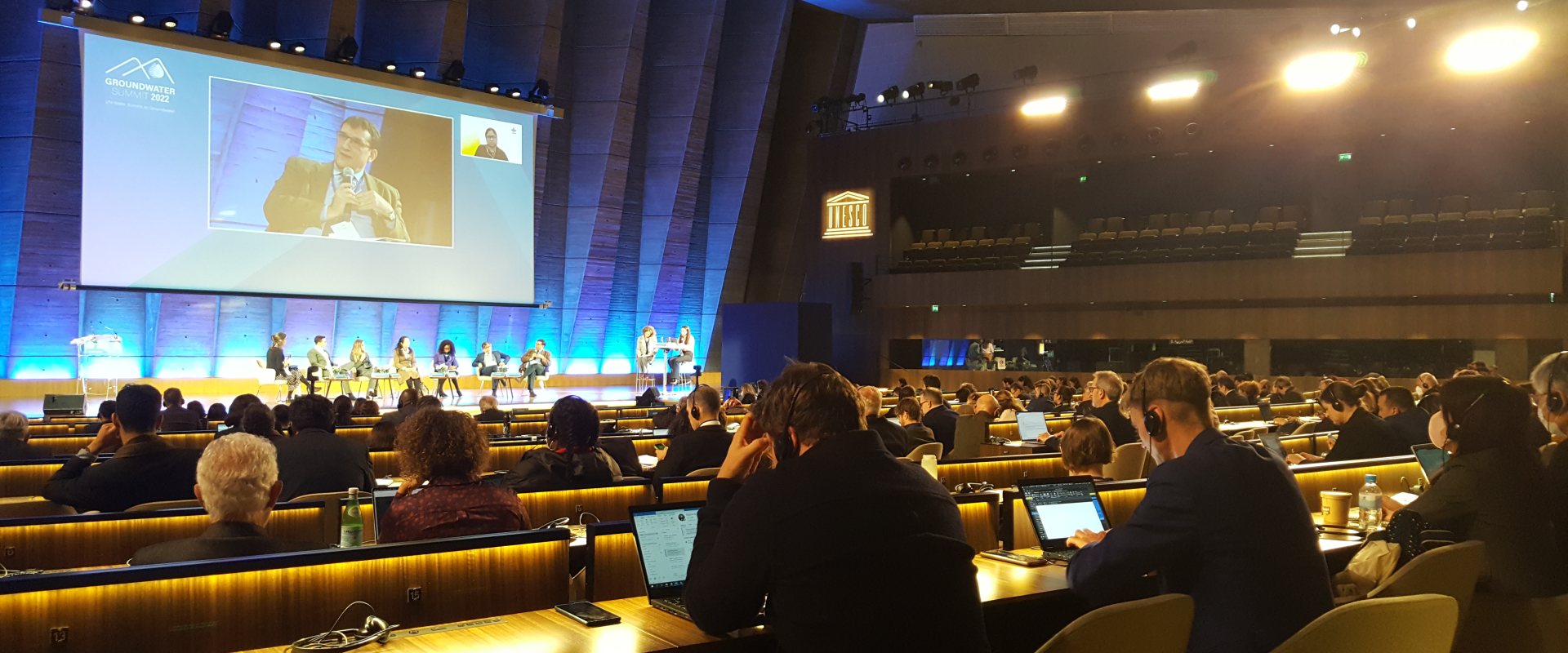
Groundwater Summit: landmark event stresses the importance of groundwater
The UN-Water Groundwater Summit held from 6 to 8 December 2022 wrapped up the ‘Year of Groundwater’ and delivered key messages for sustainable groundwater management towards the UN 2023 Water Conference taking place next March in New York.
UN-Water, UNESCO and the International Groundwater Assessment Centre, IGRAC, organised a UN level Summit on Groundwater last December for the first time. About 700 conference delegates from science, policy and practice convened at UNESCO Headquarters in Paris and around 3,000 registrations were submitted for online participation. The Summit served as a platform to share knowledge and launch new international groundwater initiatives. It also contributed key messages to the upcoming UN 2023 Water Conference. Additionally, it wrapped up 2022, the Year of Groundwater.
Central to the programme were the five topics of the SDG 6 Global Acceleration Framework:
- Financing,
- Improved data and monitoring,
- Capacity development,
- Innovation, and
- Governance.
For each topic, a Background Note was developed to guide discussions. Investing in these topics from a groundwater management perspective will speed up SDG 6 achievements. Alice Aureli, head of UNESCO’s Groundwater Systems and Settlements Section says that: ”Groundwater is often out of sight and therefore out of mind. The groundwater community has been working hard, especially this year, to make the invisible visible. We linked to the Global Acceleration Framework specially to stimulate progress on these topics.”
In addition, several thematic, regional sessions and side events were held, the majority during a full day of special Side Events scheduled on 6 December.
Dutch contribution
Several Dutch water sector organisations contributed with their expertise, case studies and international project examples to the Summit. For assistant professor Philip Minderhoud (Wageningen University and Research), also representative of UNESCO’s LASII (Land Subsidence International Initiative), the event presented a good opportunity to discuss an upcoming major research programme in the Mekong delta on transboundary groundwater management in relation with land subsidence with GEF (World Bank Global Environment Facility). MetaMeta, represented by Reinier Veldman and Henk Holtslag, shared lessons learnt on reducing cost of rural water and groundwater supply in Africa, through the SMART (Simple, Market based, Affordable and Repairable Technologies) Centres approach.
The Dutch Ministry of Infrastructure of Water Management hosted a side event on groundwater management and sustainable solutions for food and nature, using case study insights from different countries. By means of an online contribution, Kitty van der Heijden, representing the Ministry of Foreign Affairs, made a call for individual and institutional capacity development for groundwater management and water management at large to contribute to the SDGs. The Netherlands Permanent Delegation to UNESCO was also actively involved. Ambassador Monique van Daalen opened an exhibition on traditional groundwater management structures and practices, and formally closed the Summit, together with Mr. Sulton Rahimzoda, Special Envoy of the Republic of Tajikistan for Water.
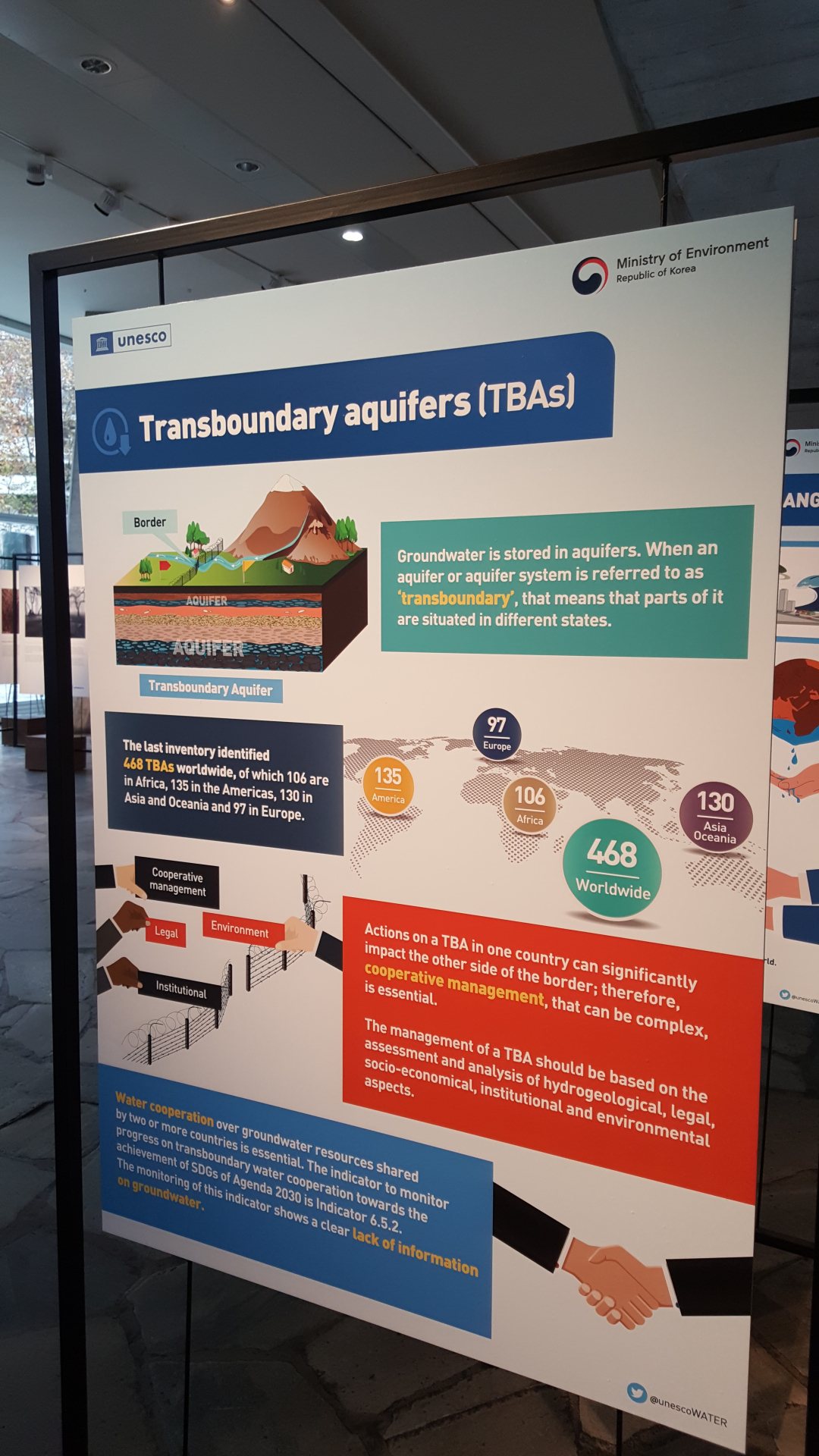

IHE Delft, represented by Eddy Moors, was involved in various sessions on capacity development, including the launch of the Transboundary Water Cooperation Coalition. The Coalition will encourage concrete commitments to advance transboundary water cooperation by countries and organisations from around the world to be submitted as contributions to the Water Action Agenda, one of the main outcomes of the UN 2023 Water Conference.
A prominent position was given to WAMU-net, the Global Network of Water Museums, to stress the relevance of traditional groundwater management structures and practices as a source of inspiration to address contemporary groundwater challenges. A side event and an exhibition presented case studies from around the globe about traditional groundwater structures. Several Dutch water museums (including Museum Broekerveiling, Haarlemmermeermuseum Cruquius and the Netherlands Water Museum) and institutes (IHE Delft and the Netherland IHP-HWRP committee) are partners of this network. The exhibition brochure with case information can be requested by emailing Martijn van Staveren via ihp.hwrp@unesco.nl.
And, of course, the International Groundwater Assessment Centre, IGRAC, was centre stage to highlight various thematic angles towards improved groundwater management, such as the need for global coverage of groundwater data collection and monitoring systems, the interconnection of science, policy and practice, and the urgency for international collaboration on transboundary aquifer management. New IGRAC’s director Elisabeth Lictevout: “IGRAC’s team has worked hard to co-organise this Summit. Its results are very rewarding. Groundwater has become much more visible, amongst water professionals, researchers and policy makers. This is an essential step to more sustainable groundwater management.”
The formal outcome document of the Summit will be published soon on the Summit’s website.
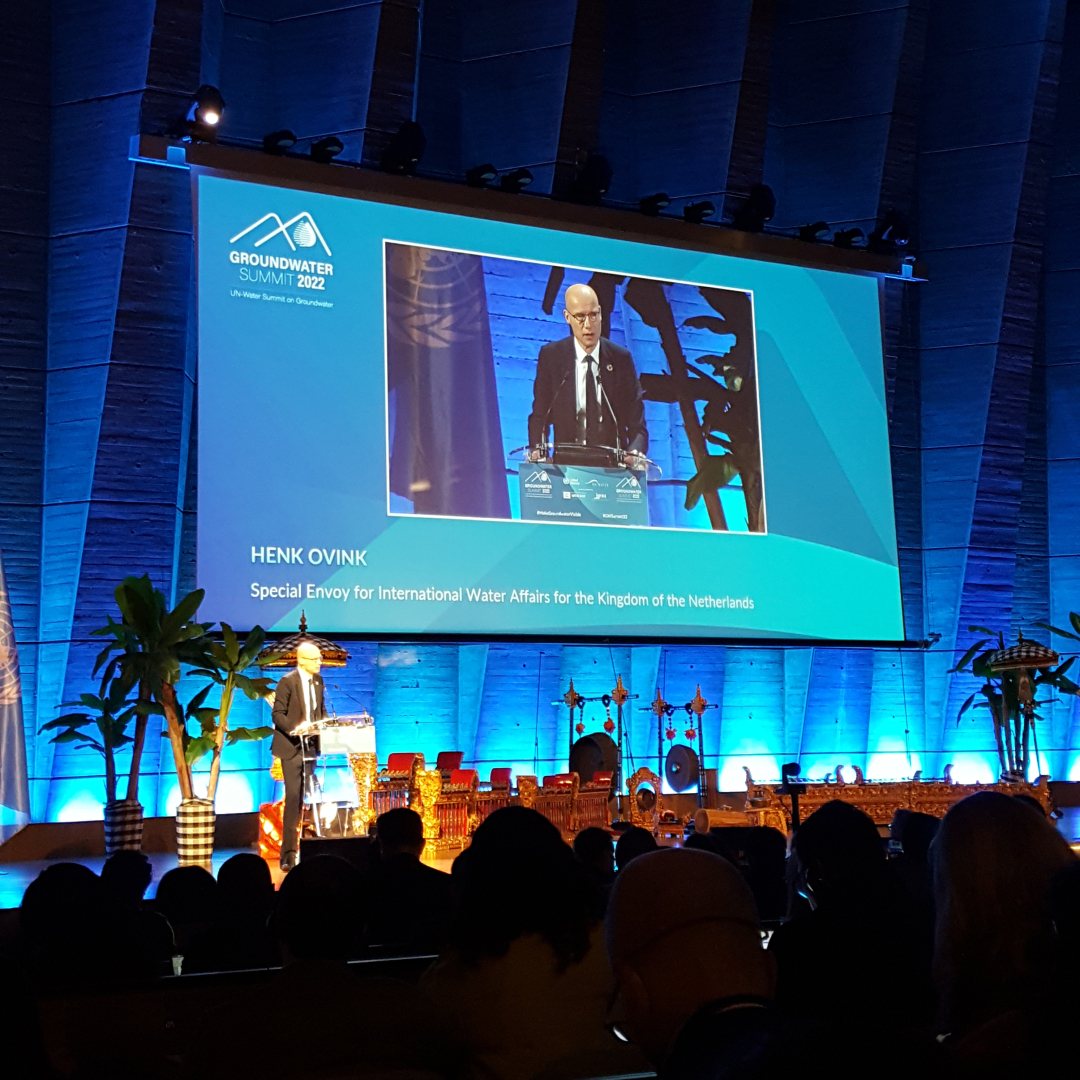

Towards the UN 2023 Water Conference
Special Envoy for International Water affairs of the Netherlands, Henk Ovink, in his key note address urged all participants to step across boundaries, work together, and bring convincing commitments from the groundwater community to the UN 2023 Water Summit taking place in New York, in March 2023: “We have undervalued groundwater for too long. Good management of groundwater trickles down to every SDG. At the UN Water 2023 Conference, let’s leap-frog to the future we want to have, and not to where we are heading.”




